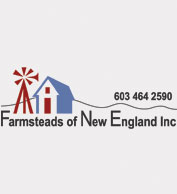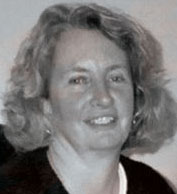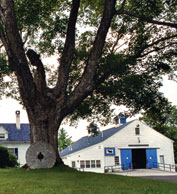STILLPOINT Archive: last updated 12/14/2007
Story by Deborah DeScenza Gray
Farmsteads of New England began with a question to myself: "What is going to become of Andrew when he grows up?
My son, Andrew, was born with a rare metabolic disorder and is considered to be both severely mentally retarded and autistic. I say "considered" because he's never responded to an IQ test in a way that is measurable, so we really don't know his level of intelligence. And autism is a disorder that is diagnosed based on observable behaviors--it isn't one condition with one cause. Put simply, Andrew behaves in ways that lead people to give him these labels.
At 24 and nearly six feet tall, Andrew can walk, climb and run in his own fashion. He is in constant motion and has virtually no attention span. He is strong in short bursts. He understands everyday communication but is nonverbal, communicating his wants and needs by a few idiosyncratic gestures and by taking people by the hand and guiding them to whatever he wants help with. He loves attention but has no understanding of socially appropriate behavior. He might wrap his arms around a perfect stranger, swipe a hat off their head to play with or, if the mood strikes, slap them as he walks by. He is apt to run screeching with delight through large stores. He feels compelled to find the most perfectly matched pair of things such as spoons or coat hangers. I avoid the clothing departments of stores at all costs when he is with me since he is likely to start stripping clothing off hangers to find the two hangers that feel best together in his hands.
As he grew up I was always wondering about his future. I learned that in our home state of New Hampshire the only model for day services for the developmentally disabled was full community-based services emphasizing competitive employment. I knew Andrew would need something different. I thought about his strengths and weaknesses and decided a farm would be the perfect setting for him. Farms have a multitude of concrete tasks that would give him the chance to do meaningful work with readily observable results so he would understand why he was doing each task. Farms also have lots of space--he would have plenty of opportunities to expend his excess energy without the worry of traffic or the need to be constantly socially appropriate.
As I researched this idea, visiting farms and similar residential settings, I decided a farm might be a great setting for other people with similar needs as well. I knew it was important that Andrew not be isolated; I'd learned that one of the biggest complaints of developmentally disabled adults is loneliness, and the direct-care staff working with these people also often feel isolated and don't have the support they need. I started dreaming of a farmstead where several people with autism and other developmental disabilities could live, work and play together with the support of a group of mentors who could also be a support to each other.
When Andrew turned 16 in 1999, I decided it was time to make the leap. I quit my full-time position as a special education teacher and program coordinator and began working on developing a farmstead. Farmsteads of New England (FNE) was incorporated in 2000 and got its tax-exempt status in 2001. We began fundraising and were able to purchase the beautiful and historic Rosewald Farm in Hillsborough, New Hampshire, in 2003. We now have five people with developmental disabilities living on the farmstead, another five who come regularly for day services, and a list of people who are waiting for us to build more residences. Additionally, we've provided respite services to about a dozen other people and their caregivers over the past few years. Our residential program focuses on life skills such as meal preparation, doing laundry and grocery shopping while our day services are a more structured combination of vocational and recreational activities including caring for animals, working in the garden, making crafts, baking, running the farmstand, swimming, snowshoeing and taking nature walks.
The residents--our "farmers"--come to understand the cycles of nature by seeing fields tilled, seeds planted and watered, plants growing and bearing fruit, and then the harvest. People frequently eat as they pick--and that's okay. Everyone helps make a big lunch each day using our own produce. We sell extra produce at our farmstand, and our farmers love running up to the office to tell me what they've sold. Everyone gathers in the barn each spring to watch the baby animals being born; we generally bottle feed at least one kid or lamb each year, and those animals become especially friendly. Each day the farmers are able to feed the animals and watch them grow. Everyone has his or her favorite.
We are about to expand so we can provide services to more people. We plan to build a cluster of six residences that will each have four one-bedroom apartments surrounding a common room. In most cases there will be three people with developmental disabilities and one nondisabled mentor living in each building. After over two years of planning, we are about to begin construction of the first two of these residences. These apartments will give each person as much privacy and independence as possible, the companionship of friends nearby, and as much support from mentors as needed.
We gave Farmsteads of New England a plural name and a wide geographic reference intentionally. We didn't want one farmstead to grow too big and become impersonal, and we figured that once we had worked out the kinks it would make more sense to duplicate the model than to force other people to reinvent the wheel. We get inquiries from parents in other states and even other countries almost every week. We're hoping that in 2008, after we've been up and running for five years, we will be able to start a second farmstead.
My goal is to have our farmers go to bed at night feeling tired from having had a full day, feeling proud for having accomplished something important, and feeling content knowing they have friends, a home and a good life.
Deborah DeScenza Gray received her B.S. in elementary education from Gordon and an M.Ed. in learning disabilities and emotional disturbances from the University of Virginia in 1979. She has completed the coursework towards a doctorate in special education administration at Boston University.


